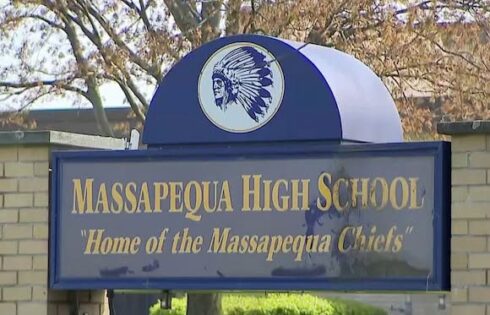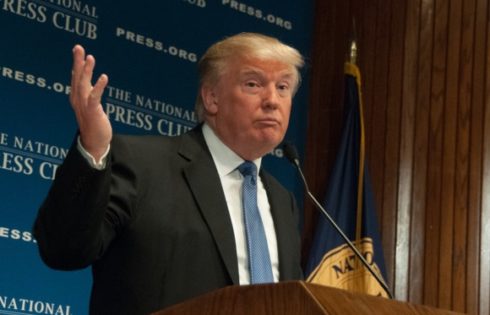The growing opposition to free speech on campuses across the country is, from a political and philosophical perspective, alarming enough. Yet the price tag for that opposition carries its own problems: schools are shelling out hundreds and hundreds of thousands of dollars to cover the security and related fees of controversial speaking events.
As Douglas Belkin writes at The Wall Street Journal, a recent appearance at Florida State University by white nationalist Richard Spencer may end up costing the school more than half a million dollars, “more than it pays for football games at a stadium that holds 90,000 people.” That enormous price tag “will cover the hundreds of officers on campus from at least 44 agencies, some from as far away as Miami, command centers, technology, room and board for officers and extra barricades.”
This sky-high cost is unfortunately not a one-off event, Belkin points out: “Security for speakers at the University of California at Berkeley has cost the school more than $2 million this calendar year, compared with less than $200,000 a year for security at special events over the past several years; and Mr. Spencer’s appearance at Texas A&M University last December cost the school $60,000, according to the schools.”
“To be sure,” Belkin writes, “high-profile speakers have always carried some security cost. When then-President Barack Obama spoke at Rutgers University in May 2016, the New Jersey school spent around $275,000 on security and traffic concerns, according to the school.” Though Belkin points out that, in these cases, “most of the security is handled by the Secret Service and any costs to the school are minimal.”
Schools have struggled to come up with a consistent answer to requests to speak, pitting their free-speech ideals against security concerns.
This month, Ohio State University rejected a request by Mr. Spencer to speak. The University of Cincinnati accepted his request. Texas A&M allowed Mr. Spencer to speak last year but rejected his request last month. The University of Florida initially rejected an event that Mr. Spencer was supposed to hold on campus, then changed course and allowed him to speak on Thursday after a judge reversed Auburn University’s rejection of Mr. Spencer.
Some schools are limiting the people who can invite speakers to those with an affiliation to the university. For instance, Mr. Spencer was invited to speak at Texas A&M last year by a former student with no active affiliation with the school. The university has since changed policies to limit those who can invite speakers to current students and faculty.
Amy Smith, spokeswoman for Texas A&M, said the school was torn about cancelling Mr. Spencer’s September event.
“We feel strongly about freedom of speech here, but at the same time it was clear there was a safety concern,” she said. “This is a national problem for public universities especially, right now we’re developing strategies in real time but there’s nothing conclusive about how to manage our security costs as we go forward.”
At Berkeley this fall, Belkin notes, “This fall, the school shelled out another $600,000 more for security when conservative commentator Ben Shapiro spoke on campus and then more than $1 million when Mr. Yiannopolous scheduled a free speech week.”
“That series of events fizzled when most of the scheduled speakers didn’t show. Still, the school was stuck with the bill.”
Like The College Fix on Facebook / Follow us on Twitter




Add to the Discussion